14 Tips to Reduce Inflammation to Lose Weight Faster, According to RDs
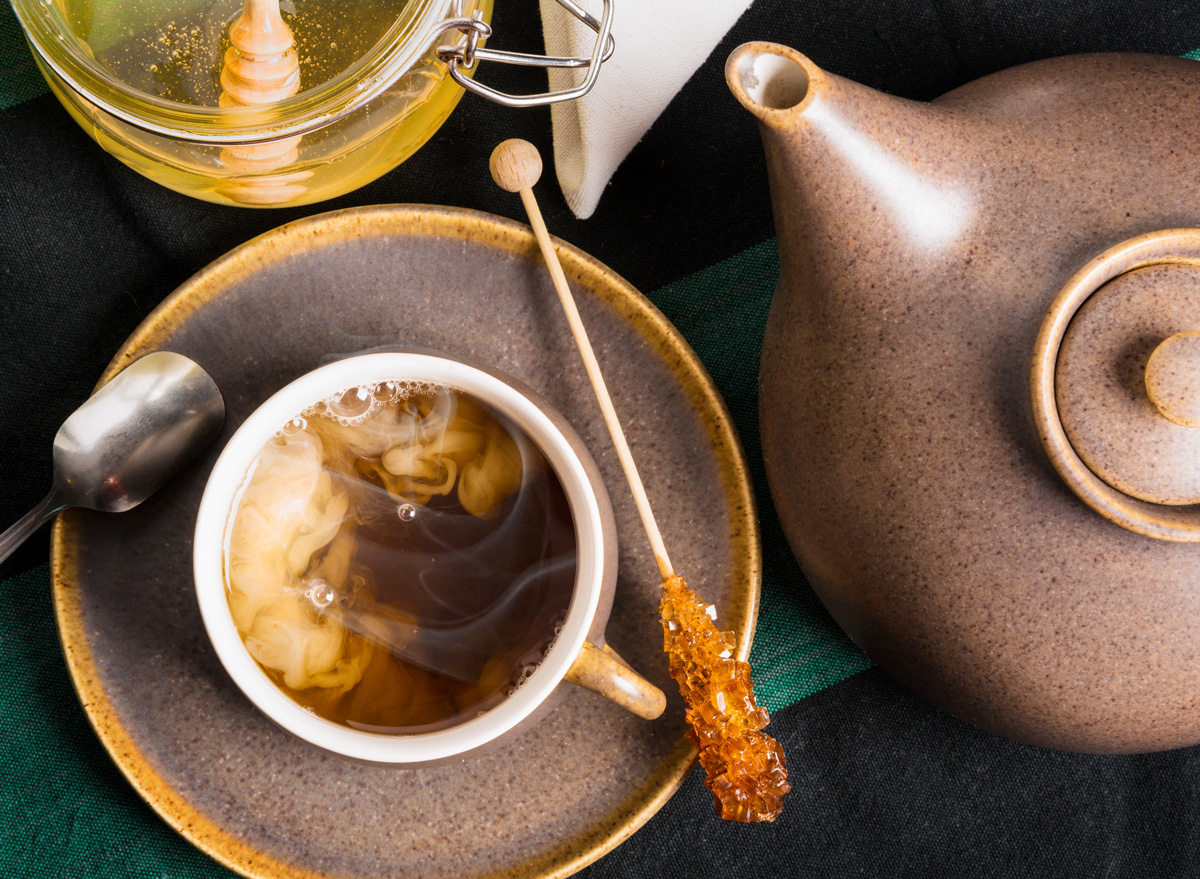
When trying to lose or manage weight, many people’s go-to solutions include trying things like counting calories or cutting out carbs. And while these methods may work for some people, unfortunately, it is not a one-size-fits-all solution.
Many may know that chronic inflammation is linked to outcomes like an increased risk of certain cancers and hypertension. But they may not realize that it can also be associated with weight gain. In fact, data suggests that as inflammatory markers in the blood increase, weight increases as well.
One reason why inflammation may be linked to weight gain is that chronic inflammation and insulin resistance appear to go hand-in-hand. And since insulin resistance can result in weight gain, the relationship between inflammation and weight status is apparent.
Compound the effects inflammation has on insulin with the effects it may have on leptin — a hunger hormone that helps the brain regulate how much a person should eat — and inflammation can cause a double-whammy when it comes to causing weight gain. Chronic inflammation may impair the leptin response, which can induce resistance to weight control, and therefore it may be a cause of obesity, according to data published in the International Journal of Molecular Science.
So, while you may be doing “all of the things” when it comes to losing weight with little success, chronic inflammation may be to blame. Inflammation may be managed with simple diet and lifestyle changes that can easily be incorporated into a daily routine.
Below, you will find 14 dietitian-approved tips for managing inflammation and may be your ticket to successful and long-term weight management. Read on, and for more on how to lose weight, you won’t want to miss The Best Ways to Lose Belly Fat for Good, Say Doctors.
Swap your soda for tea

Drinking sugary sodas can contribute to inflammation. If you want to do without your sweet fizzy beverage but need something other than water to satisfy your palette, try sipping on some tea. Whether iced or hot, enjoying teas like green tea can offer anti-inflammatory benefits in a refreshing and calorie-free way. Reducing inflammation isn’t the only benefit you’ll get from drinking tea: What Happens to Your Body If You Drink Tea Every Day.
Don’t give up your dairy foods
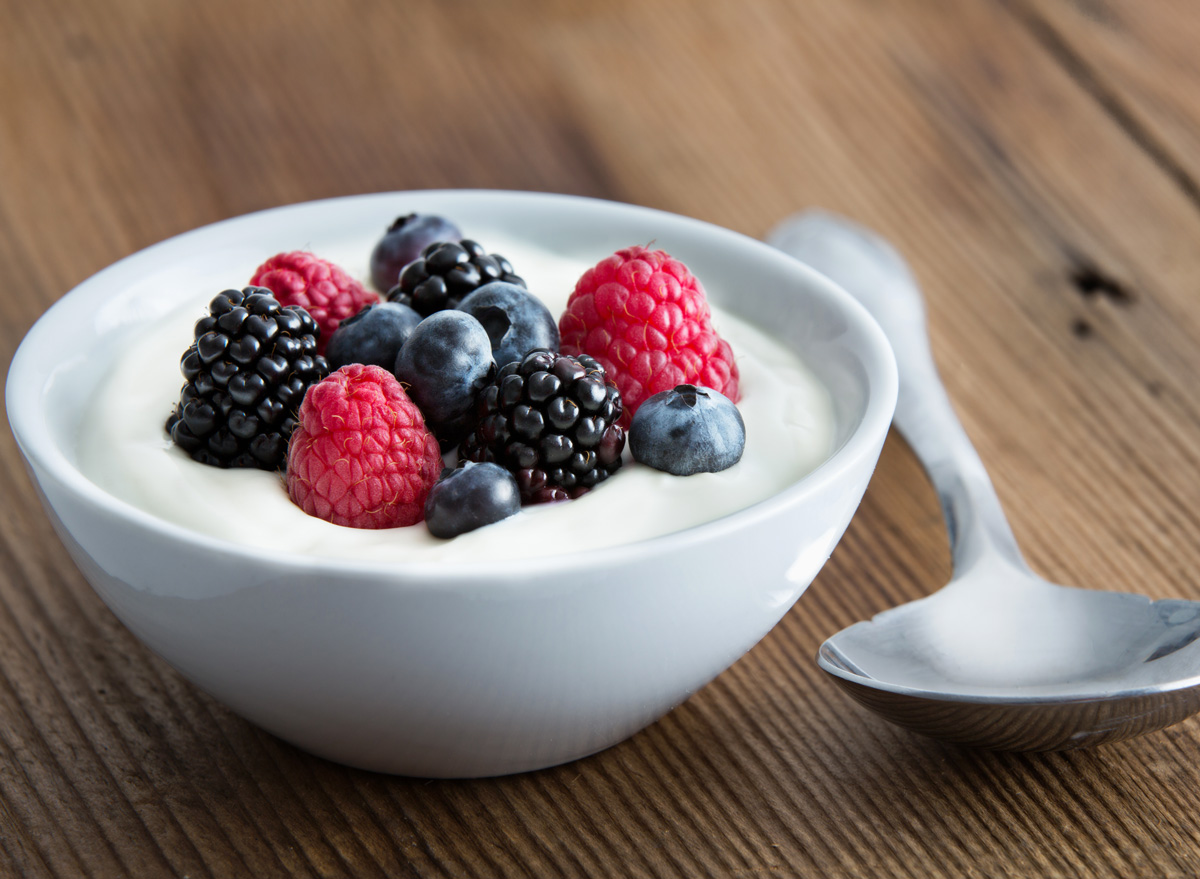
No need to avoid milk, yogurt, or cheese when trying to limit foods that contribute to inflammation. Since data suggests that dairy foods appear to have neutral to beneficial effects on inflammatory markers, enjoying your dairy foods can be a positive addition to your diet. Bonus? Dairy foods are a source of calcium, a mineral that helps support bone health!
Satisfy your sweet tooth with a serving of watermelon
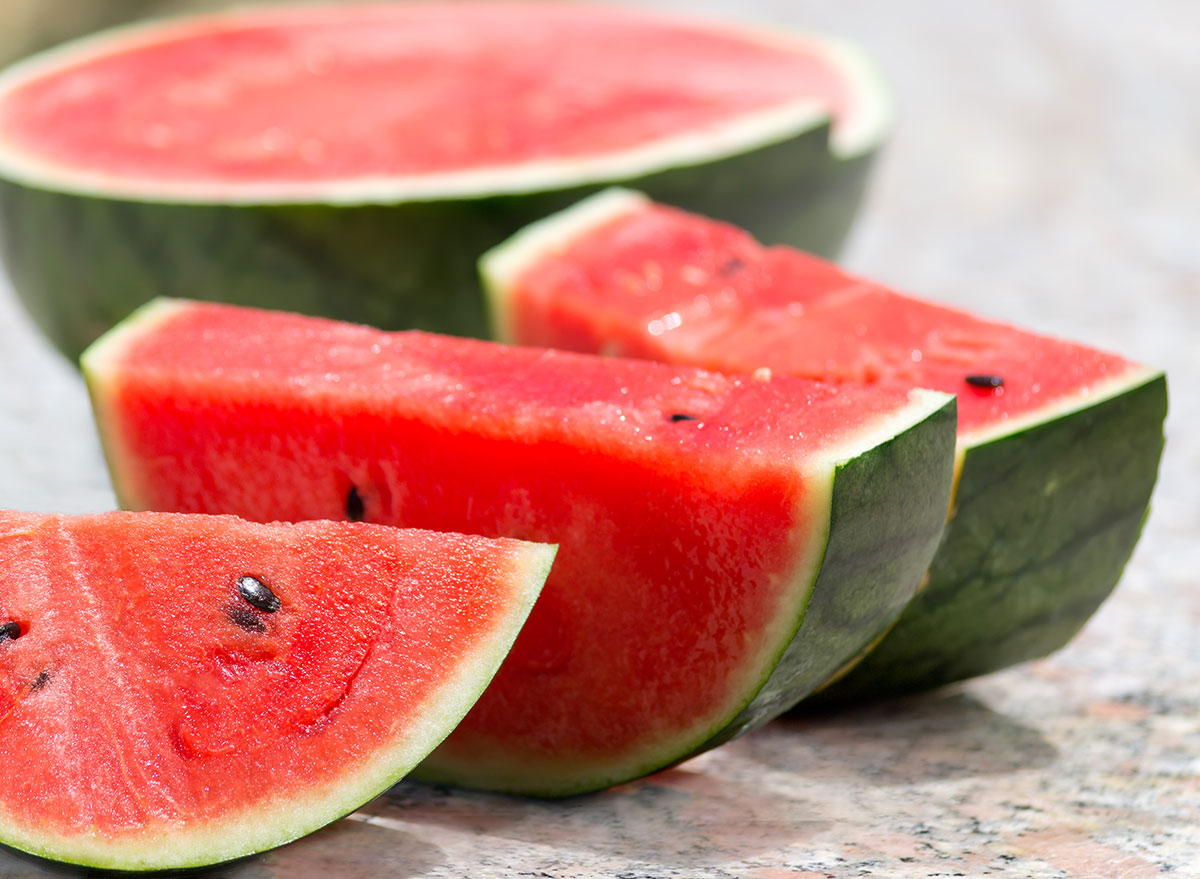
Along with being a naturally sweet and hydrating food, watermelons naturally contain citrulline, which has been shown to offer anti-inflammatory properties. Snacking on this popular fruit can be a simple way to help manage inflammation, and can be a great alternative to sugary treats.
Pro tip: Before watermelon season ends, cut some into cubes and freeze them so you can have access to a refreshing snack all year long. Related: Here’s What Happens To Your Body When You Eat Watermelon Every Day.
Move your body

Elizabeth Shaw, MS, RDN, CPT, Nutrition Expert at ShawSimpleSwaps.com and Author of Slash the Sugar Guide, suggests you focus on the foods you are putting in your body in conjunction with how you are moving your body. She explains that physical activity “will significantly aid in boosting your weight loss while lowering inflammation.”
Her tip is to move your body at least 30 minutes a day, which can be 10-minute bouts broken up over an entire day while also focusing on anti-inflammatory food choices.
Eat the rainbow
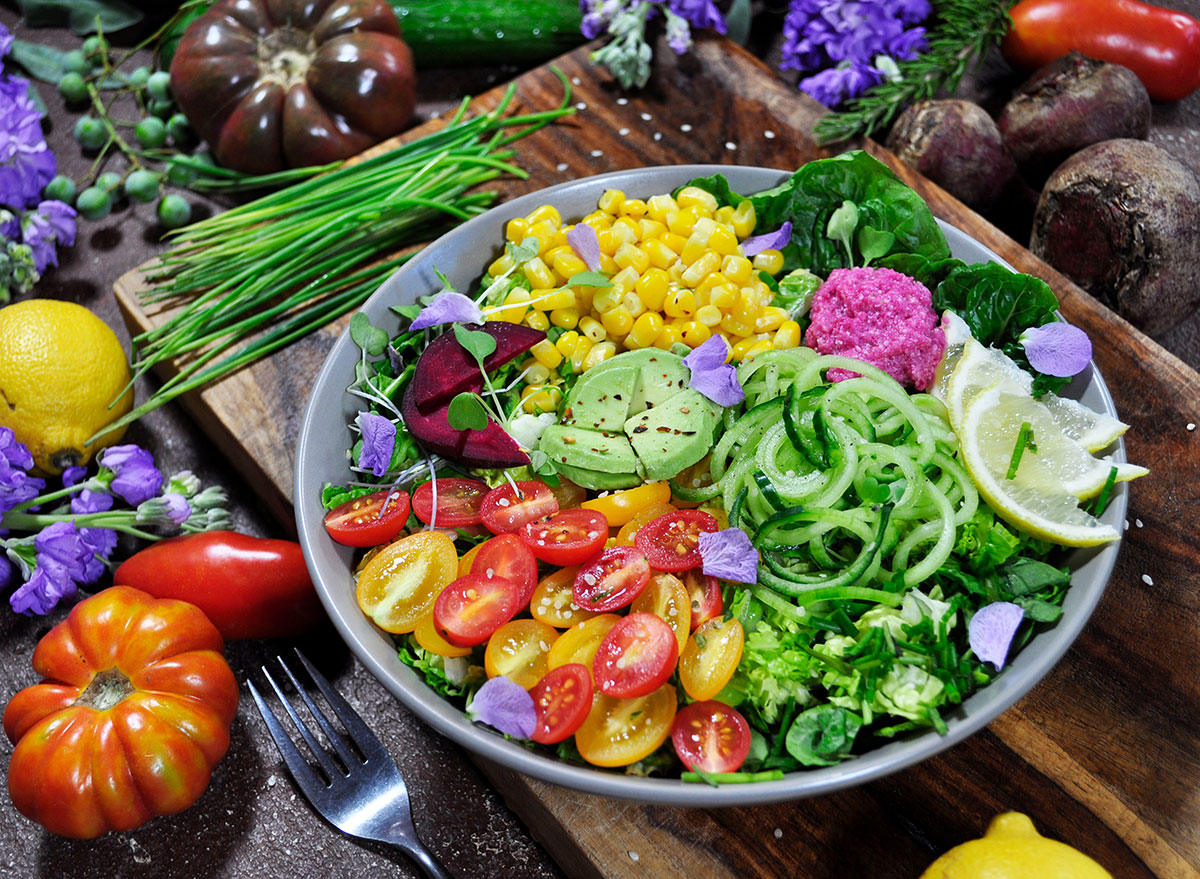
“Eat a rainbow of produce: the color of produce is indicative of the unique phytonutrients they contain which have their own distinct anti-inflammatory properties,” explains Mia Syn, MS, RDN, a Charleston-based registered dietitian.
Enjoy fatty fish
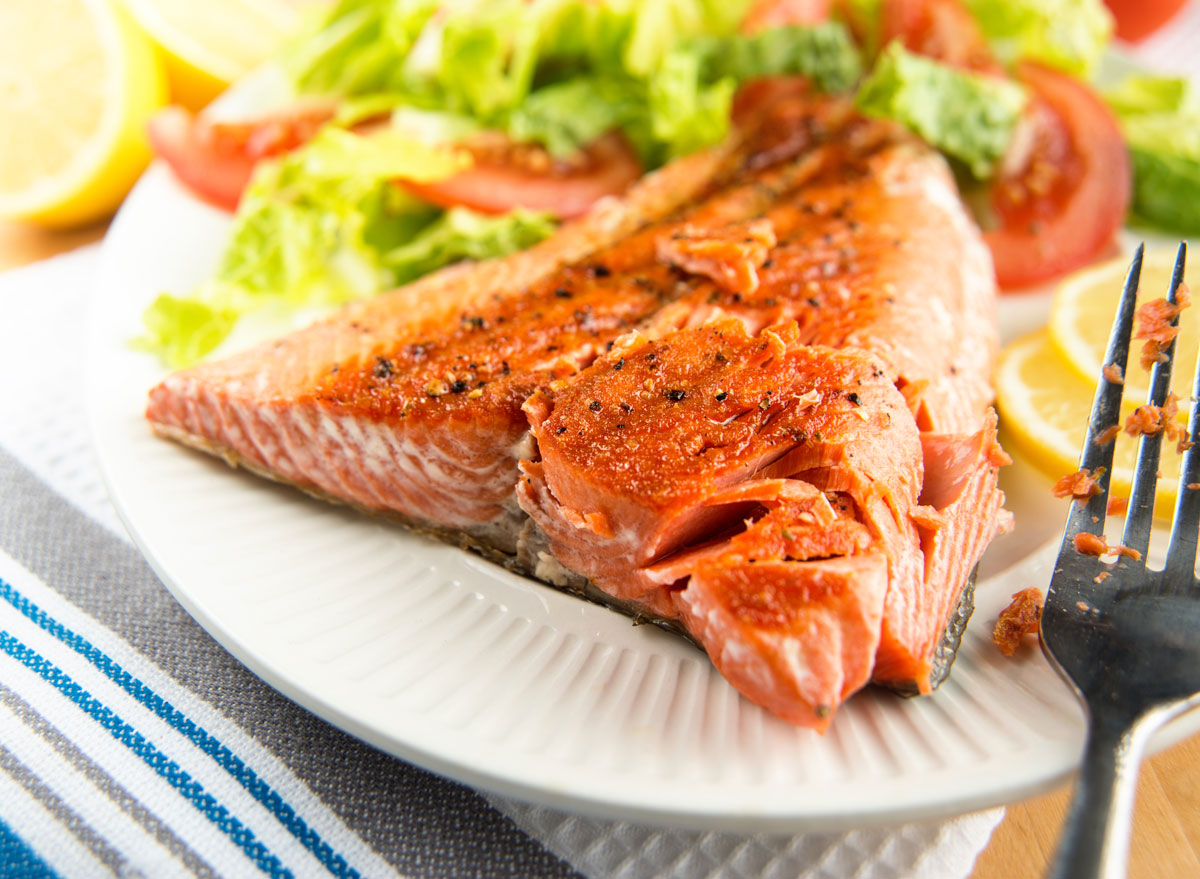
Syn also suggests that people include fatty fish in their diets when managing inflammation. “When meeting your recommended 2 servings of fish per week, seek out sources rich in anti-inflammatory omega-3 fats like salmon, sardines, mackerel, and other cold-water fish.”
Swap refined grains for whole grains
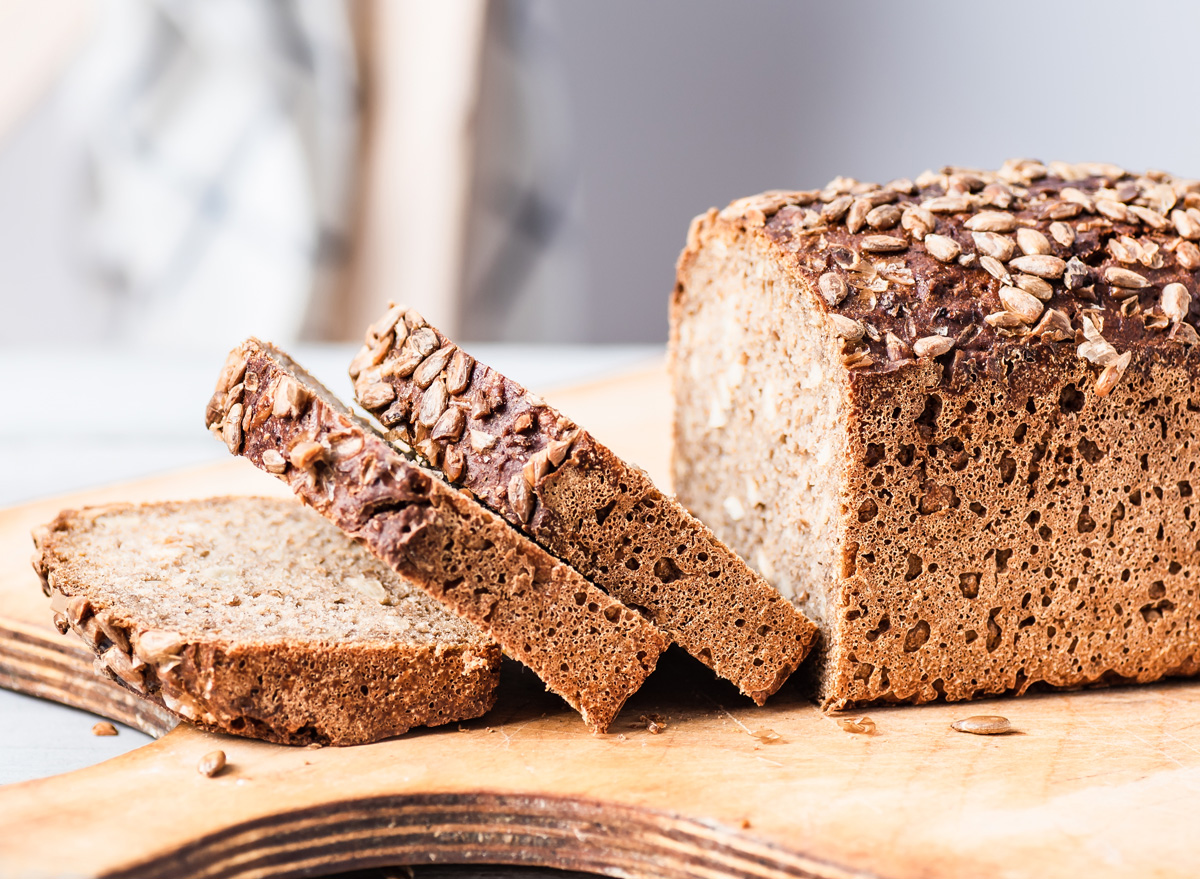
“Swap out low fiber, refined grains like white bread, for high fiber, whole grains like 100% whole wheat bread or rolled oats,” explains Nicole DeMasi Malcher, MS, RDN, CDCES, a registered dietitian and certified diabetes educator. “Having too many refined grains can send your blood sugars on a rollercoaster ride, causing your body to release more insulin, and lead to more inflammation over time. The high fiber content of whole grains is key for slow release of sugar into the blood, keeping you full, and improving your gut microbiome, all helping to further reduce inflammation.” If you’re grain-free, there are other high-fiber foods to eat: 43 Fiber-Rich Foods For a Healthy Diet.
Spice it up
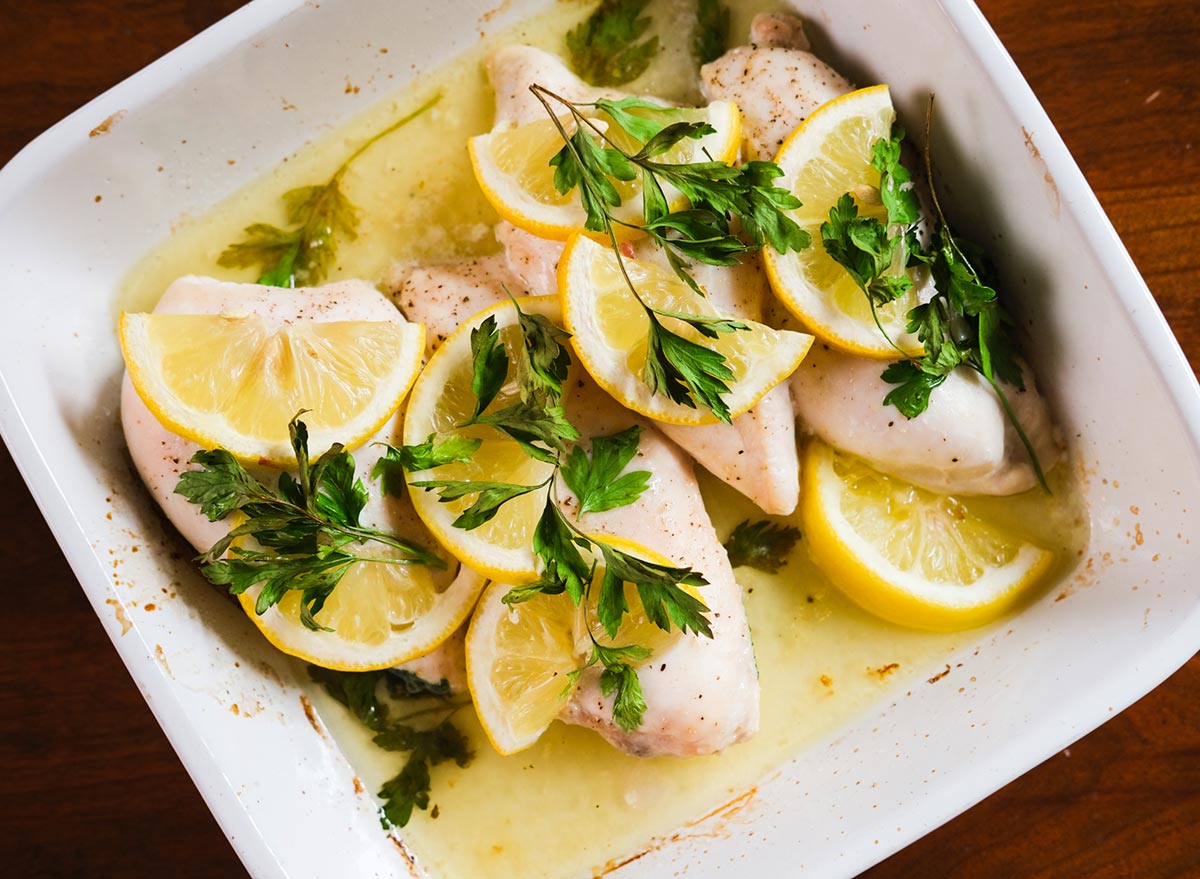
“Adding herbs and spices to your meals is one of the easiest ways to boost its anti-inflammatory benefits since herbs and spices are rich in antioxidants,” explains Mary Dinehart-Perry, MS, RDN, LDN, registered dietitian and clinical director at ZoneLabs. “We often overlook adding them, but it could be as simple as adding cinnamon to yogurt in the morning or throwing in fresh herbs and spices with your salads or salad dressings.”
Choose your sweeteners wisely
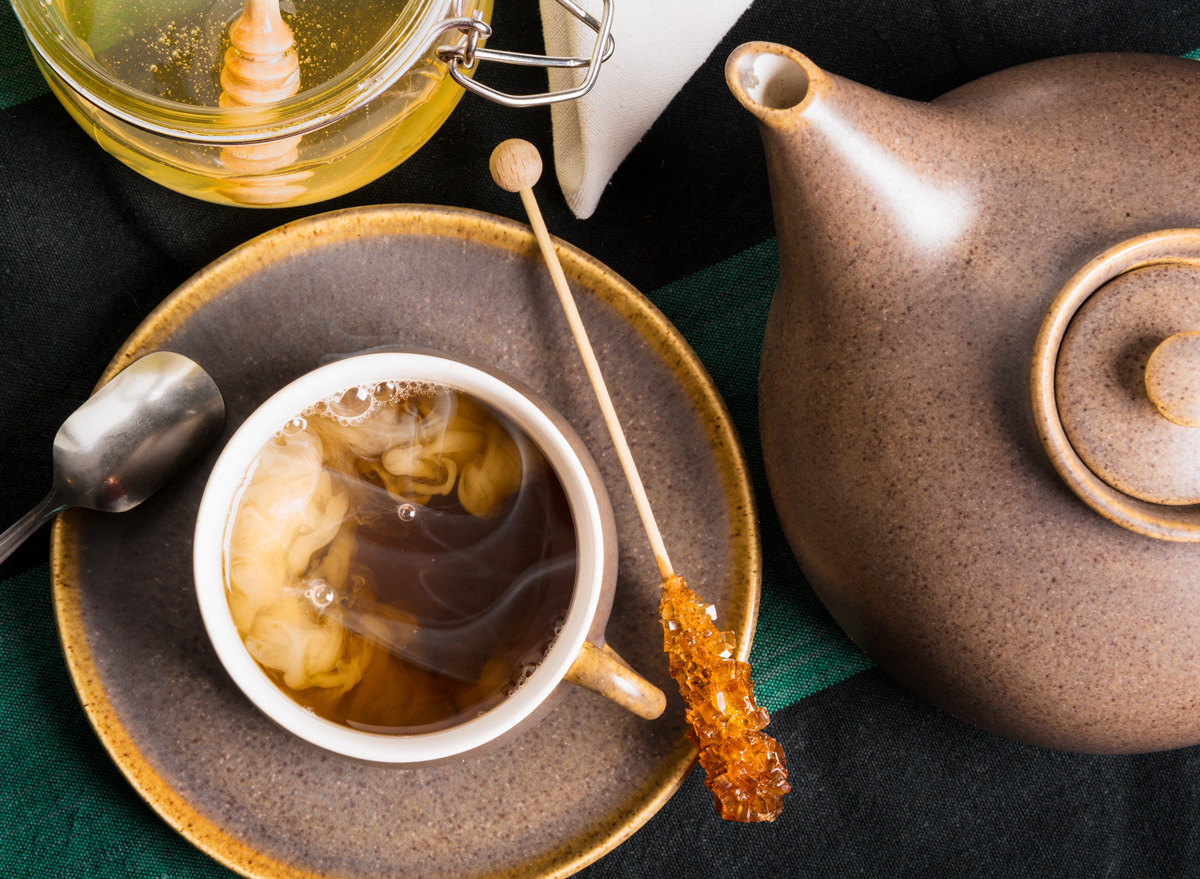
“Swap sugar in your tea/ coffee with Manuka Honey, as some studies have shown that Manuka Honey has demonstrated the potential to reduce inflammation,” explains Sandy Younan Brikho, MDS, RDN, registered dietitian and founder of thedishonnutrition.com.
Sprinkle cinnamon on your food
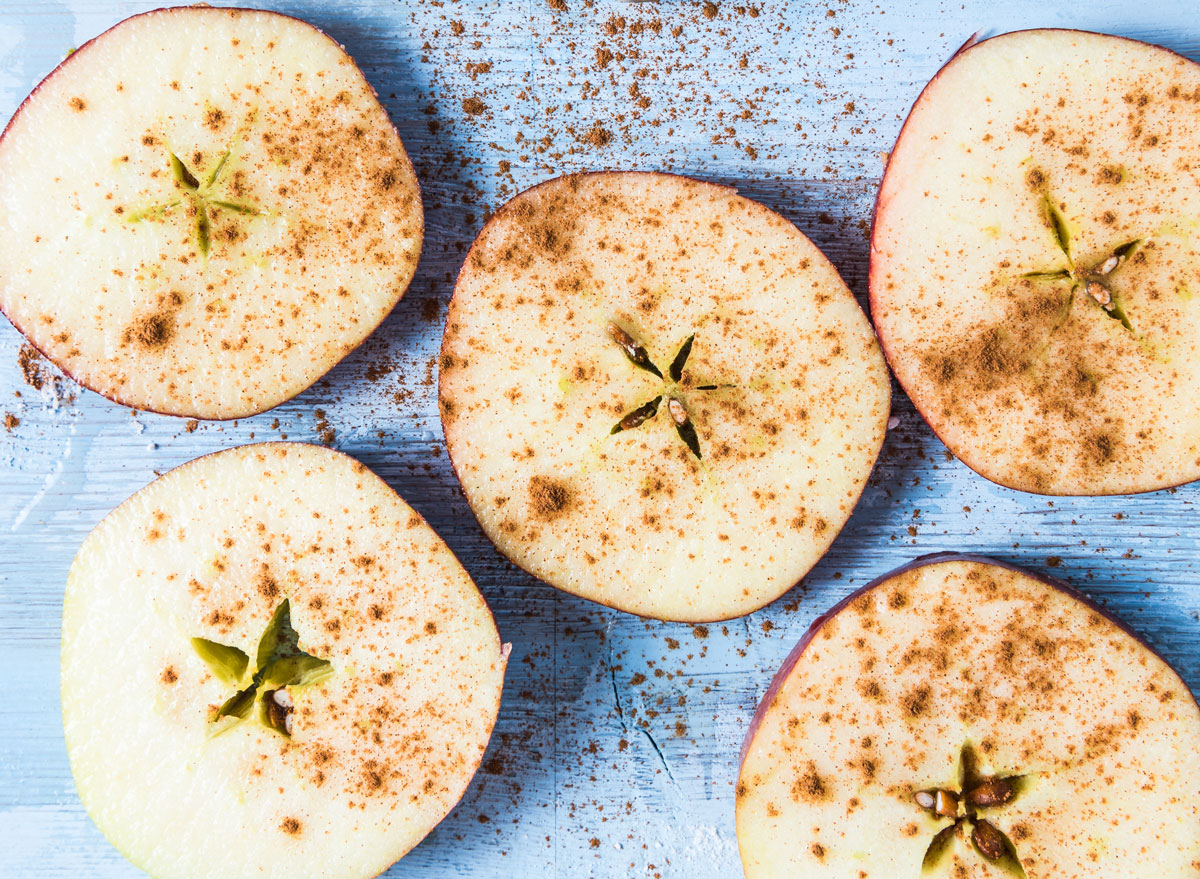
“Add cinnamon to any recipe to reap its anti-inflammatory benefits,” explains Donna Rose, RDN, LDN, Owner of Nona’s Nutrition Notes. “Evidence supports its role in reducing swelling associated with arthritis and symptoms of inflammatory bowel disease (IBD).”
Rose suggests adding cinnamon to baked goods, coffee, or tea for a simple way to boost your diet.
Replace canola oil with olive oil

Since canola oil is rich in omega-6 fatty acids, it can contribute to inflammation issues. Using olive oil instead of canola is a simple change to a routine that can give your body the anti-inflammatory boost that it needs. Read more: What Happens To Your Body When You Eat Olive Oil
Enjoy a blended burger

Although excessive consumption of red meat may be linked to elevated markers of inflammation (especially in women), there is no need to give up your burger nights all together. By using half of your normal serving of ground beef and making up for the loss by using diced mushrooms, you can enjoy a blended burger that contains half the amount of red meat along with fewer calories and additional fiber. And since mushrooms naturally contain various anti-inflammatory properties, enjoying a blended burger can help your body manage inflammation while avoiding the need to sacrifice one of your favorite foods.
Quit smoking cigarettes

Puffing on that cigarette can put you at risk for more than lung cancer. The nicotine found in your cigarettes has been shown to stimulate inflammation in the body while offering a slew of other undesirable effects. Skip the cigarettes and find healthier ways to manage stress like meditation or exercise. It may be the key to attaining the weight you desire.
Add walnuts to your dishes
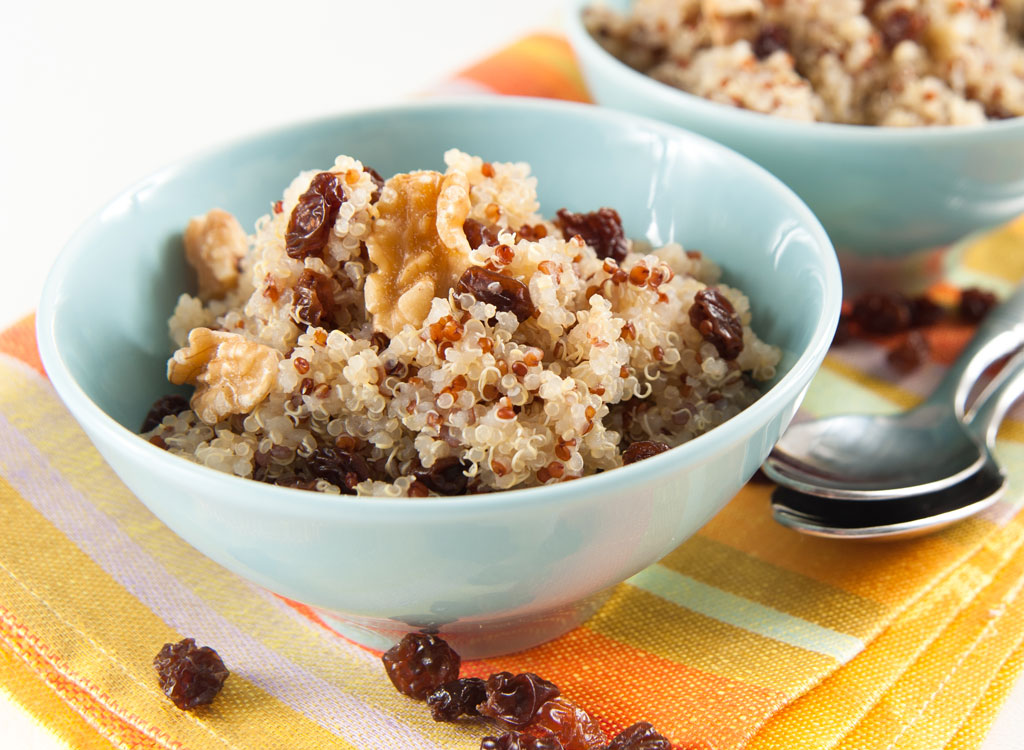
Data exploring the benefits of walnuts in older adults and published in the Journal of the American College of Cardiology, suggests that people in their 60s and 70s who regularly consume walnuts may have reduced inflammation compared to those who do not eat walnuts. Whether they are used as a topping on your yogurt or added to your trail mix, walnuts are a convenient anti-inflammatory food that goes well with many dishes.